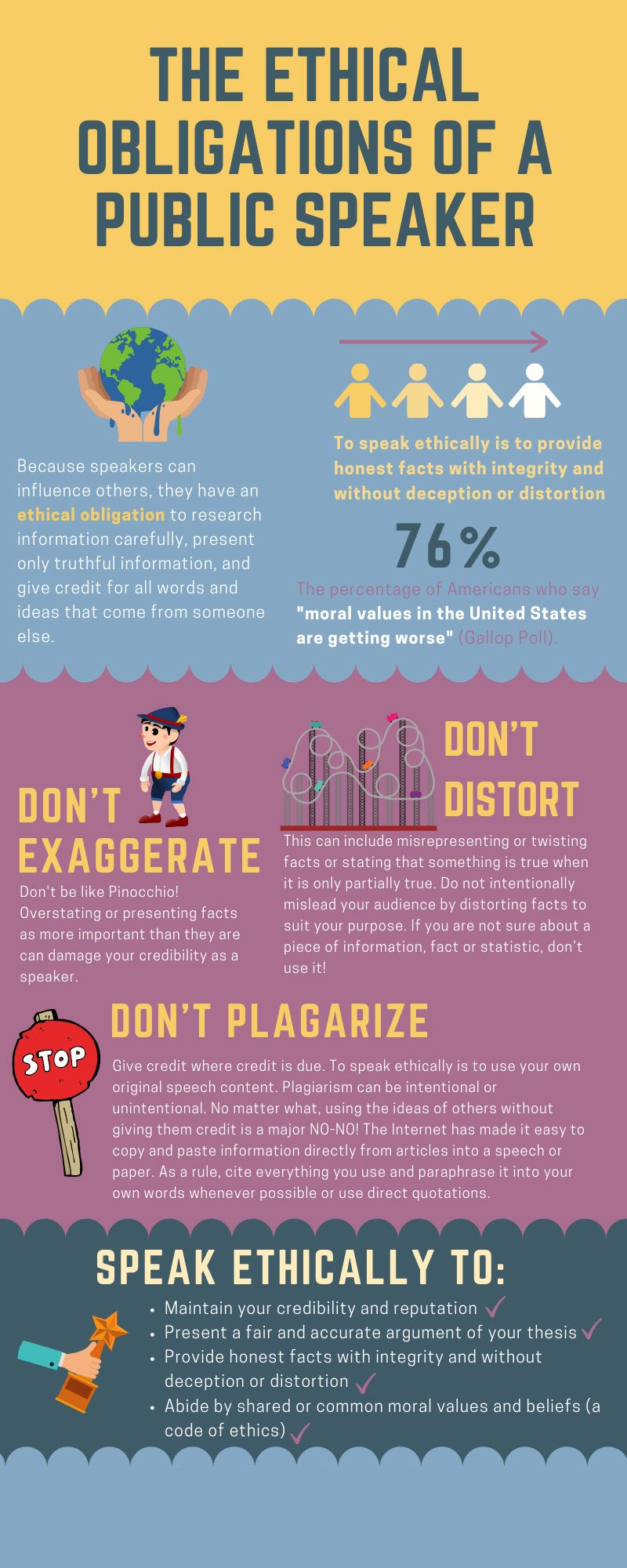THE ETHICAL OBLIGATIONS OF A PUBLIC SPEAKER
DON’T EXAGGERATE
Don’t be like Pinocchio! Overstating or presenting facts as more important than they are can damage your credibility as a speaker.
DON’T DISTORT
This can include misrepresenting or twisting facts or stating that something is true when it is only partially true. Do not intentionally mislead your audience by distorting facts to suit your purpose. If you are not sure about a piece of information, fact or statistic, don’t use it!
DON’T PLAGARIZE
Give credit where credit is due. To speak ethically is to use your own original speech content. Plagiarism can be intentional or unintentional. No matter what, using the ideas of others without giving them credit is a major NO-NO! The Internet has made it easy to copy and paste information directly from articles into a speech or paper. As a rule, cite everything you use and paraphrase it into your own words whenever possible or use direct quotations.
Because speakers can influence others, they have an ethical obligation to research information carefully, present only truthful information, and give credit for all words and ideas that come from someone else.
SPEAK ETHICALLY TO:
- Maintain your credibility and reputation.
- Present a fair and accurate argument of your thesis.
- Provide honest facts with integrity and without deception or distortion.
- Abide by shared or common moral values and beliefs (a code of ethics).

